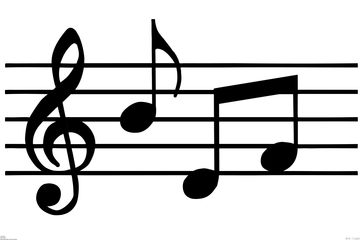Rock Music
Genre | Music Genre
Rock music is a broad genre of popular music that originated as "rock and roll" in the United States in the late 1940s and early 1950s, developing into a range of different styles in the mid-1960s and later, particularly in the United States and the United Kingdom. It has its roots in 1940s and 1950s rock and roll, a style that drew directly from the blues and rhythm and blues genres of African-American music and from country music. Rock music also drew strongly from a number of other genres such as electric blues and folk, and incorporated influences from jazz, classical, and other musical styles.
Rock musicians in the mid-1960s began to advance the album ahead of the single as the dominant form of recorded music expression and consumption, with the Beatles at the forefront of this development. Their contributions lent the genre a cultural legitimacy in the mainstream and initiated a rock-informed album era in the music industry for the next several decades. By the late 1960s "classic rock" period, a number of distinct rock music subgenres had emerged, including hybrids like blues rock, folk rock, country rock, southern rock, raga rock, and jazz rock, many of which contributed to the development of psychedelic rock, which was influenced by the countercultural psychedelic and hippie scene. New genres that emerged included progressive rock, which extended the artistic elements, glam rock, which highlighted showmanship and visual style, and the diverse and enduring subgenre of heavy metal, which emphasized volume, power, and speed. In the second half of the 1970s, punk rock reacted by producing stripped-down, energetic social and political critiques. Punk was an influence in the 1980s on new wave, post-punk and eventually alternative rock.
Subject ID: 82278
MoreRock music is a broad genre of popular music that originated as "rock and roll" in the United States in the late 1940s and early 1950s, developing into a range of different styles in the mid-1960s and later, particularly in the United States and the United Kingdom. It has its roots in 1940s and 1950s rock and roll, a style that drew directly from the blues and rhythm and blues genres of African-American music and from country music. Rock music also drew strongly from a number of other genres such as electric blues and folk, and incorporated influences from jazz, classical, and other musical styles.
Rock musicians in the mid-1960s began to advance the album ahead of the single as the dominant form of recorded music expression and consumption, with the Beatles at the forefront of this development. Their contributions lent the genre a cultural legitimacy in the mainstream and initiated a rock-informed album era in the music industry for the next several decades. By the late 1960s "classic rock" period, a number of distinct rock music subgenres had emerged, including hybrids like blues rock, folk rock, country rock, southern rock, raga rock, and jazz rock, many of which contributed to the development of psychedelic rock, which was influenced by the countercultural psychedelic and hippie scene. New genres that emerged included progressive rock, which extended the artistic elements, glam rock, which highlighted showmanship and visual style, and the diverse and enduring subgenre of heavy metal, which emphasized volume, power, and speed. In the second half of the 1970s, punk rock reacted by producing stripped-down, energetic social and political critiques. Punk was an influence in the 1980s on new wave, post-punk and eventually alternative rock.
From the 1990s, alternative rock began to dominate rock music and break into the mainstream in the form of grunge, Britpop, and indie rock. Further fusion subgenres have since emerged, including pop punk, electronic rock, rap rock, and rap metal, as well as conscious attempts to revisit rock's history, including the garage rock/post-punk and techno-pop revivals in the 2000s. The 2010s saw a slow decline in rock music's mainstream popularity and cultural relevancy, with hip hop surpassing it as the most popular genre in the United States. In the 2020s, the COVID-19 pandemic had a major impact on the rock scene, with many live performances being cancelled or postponed, and some artists resorting to online performances; the decade has also seen a revival of pop punk music.
Rock music has also embodied and served as the vehicle for cultural and social movements, leading to major subcultures including mods and rockers in the United Kingdom and the hippie counterculture that spread out from San Francisco in the US in the 1960s. Similarly, 1970s punk culture spawned the goth, punk, and emo subcultures. Inheriting the folk tradition of the protest song, rock music has been associated with political activism as well as changes in social attitudes to race, sex, and drug use, and is often seen as an expression of youth revolt against adult consumerism and conformity. At the same time, it has been commercially highly successful, leading to charges of selling out.
Subject ID: 82278
Subject ID: 82278
